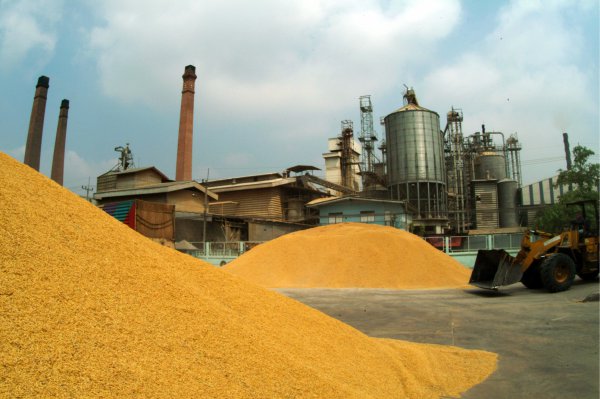Following the Federal Government’s ban on rice importation through the land borders, local rice millers are finding it difficult to cope with the demand for the commodity from dealers.
Only Umza Rice, the largest local rice mill in Nigeria, which is located in Kano, is currently supplying most markets in the country.
Many dealers expressed anger over depositing money to the company for months without getting any supply.
Consumption of rice in Nigeria is put at over six million metric tonnes per annum. Local production is about 2.8 million metric tonnes while imports account for 2.5 million metric tonnes.
Local production recently dropped from 2.835 million metric tonnes to about 2.701 million metric tonnes, according to data from the United States Department of Agriculture.
The USDA projected that local rice production would hit 2.730 million metric tonnes by December 2017. Imports are also expected to fall by 400,000 metric tonnes to 2.1 metric tonnes by 2017.
A major rice distributor in Lagos, Mrs. Olufunke Coker, said she had paid for the 10 trailers of rice for the past one month but she could only get two trailers.
Umza was said to be so overwhelmed with orders that the management of the company had resorted to rejecting fresh orders from people needing the commodity.
Although importation of rice is allowed through the seaports, importers said they were required to source for forex from the parallel market at the exchange rate of over N400 to one dollar to bring the product into the country.
Investigations revealed that the situation sometimes forced dealers to buy smuggled rice from Cotonou at the risk of having their consignments impounded by the Nigeria Customs Service.
Recently, officials of the NCS seized more than six trailers of rice suspected to be smuggled from some shops at the Iddo Railway Terminus, Lagos.
The spokesman for the NCS, Mr. Wale Adeniyi, said the service had received information that some smuggled trailers of rice were taken to the terminus, which prompted the raid.
Following the fall in crude oil prices and drop in Nigeria’s foreign reserves, the government had through the Central Bank of Nigeria restricted importation including banning the importation of rice.
It was gathered that efforts by major rice producing states to boost production in November 2015 had resulted in the adoption of the dry season rice farming scheme, deploying improved rice seedlings in Kebbi State.
Speaking in an interview, the former Deputy Governor of Kebbi State, Sulaiman Argungu, said the dry season farming had yielded a harvest of 1.5 million metric tonnes of paddy rice.
An Anambra State local rice miller and Chairman of Stine Industries, Chief Akai Egwuonwu, said rice production would increase by November this year, adding that this could push down the price of the product, currently hovering around N20, 000 per 50kg bag.






No comments:
Post a Comment